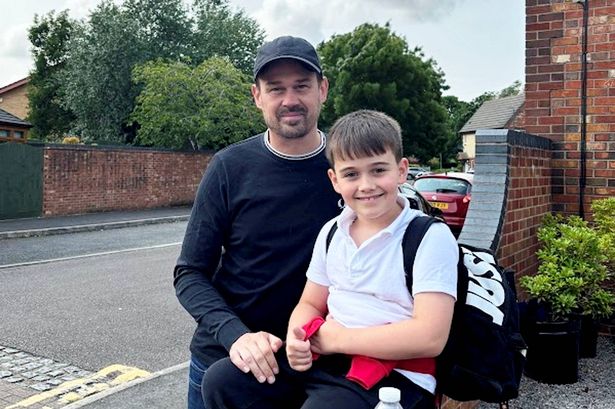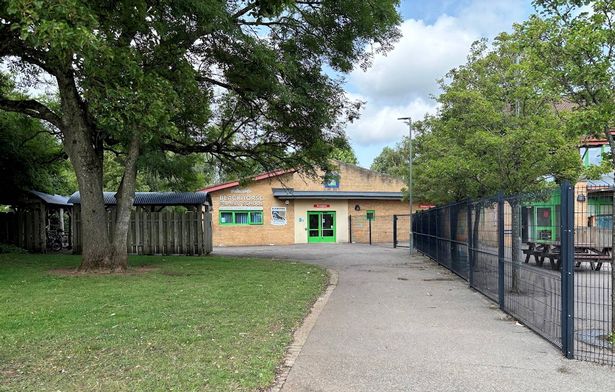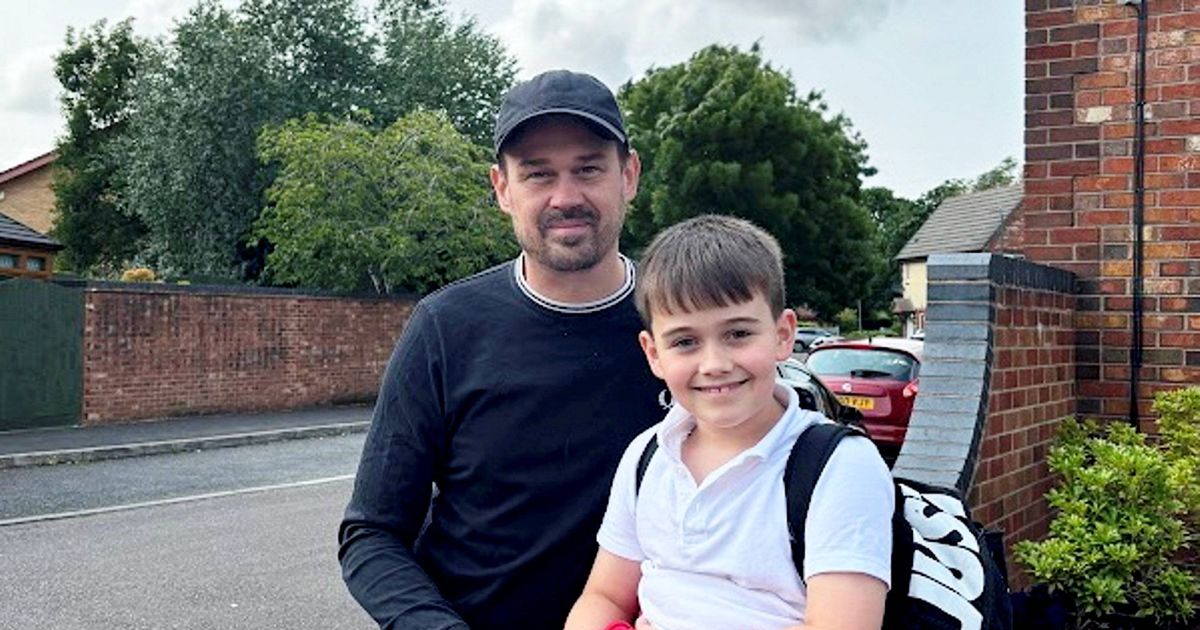The Bristol school took action after 9,000 messages flooded a pupil WhatsApp chat in just 15 hours Lee Budd and son Jonnie Budd, 8, at Blackhorse Primary School(Image: SWNS)
Lee Budd and son Jonnie Budd, 8, at Blackhorse Primary School(Image: SWNS)
Parents have largely welcomed a Bristol primary school’s decision to completely ban smartphones after a teacher’s shocking discovery.
As Bristol Live reported on Monday, children at Blackhorse Primary School in Emersons Green will no longer be allowed to bring in smartphones, even if they’re just using it during their journey to and from the gates.
Previously pupils had been allowed to bring smartphones to school, but had to hand them in to the teacher during lesson time. However, a worrying incident has led to stricter rules that will come into force in September.
Speaking outside the school this week, parents welcomed the ban but others questioned if it was necessary to apply it outside of the school gates.
Lee Budd, father of Jonnie, eight, said: “I don’t think it’s a bad idea at all. Phones consume attention.”
A mother of a Year 5 student and a former Blackhorse pupil, now in Year 7 at another school, said: “It was the school that encouraged us to get a phone for my Year 7 daughter so she could walk to school on her own.
“I feel neutral, really, but I don’t see why they need to change the current rule of leaving the phone in a box at the start and end of the day.”
The school conducted a survey which showed 87 per cent of parents at the larger Blackhorse Primary School in favour of the outright ban, while at Emersons Green Primary, a sister school that is also considering the same ban, it was a lot more split – 58 to 42 in favour.
Governors at Blackhorse had the ultimate decision, and they voted that the ban is to come into force in September. Governors at Emersons Green are yet to have their vote.
Writing in a blog, executive headteacher Simon Botten said: “Since announcing the result, I have had zero emails from parents complaining about the ban, whereas I have had a good many parents thank the school for taking a stand.”
A debate around safety was sparked around a year ago when a pupil at the school forgot to pick up their mobile at the end of the day, accidentally leaving it in the teacher’s cupboard overnight.
When the teacher picked it up to return it the next day, they noticed a shocking 9,000 missed messages had popped in from the Year 6 WhatsApp chat in the 15-hour period it had been left.
Groups of parents were set up to consult on the issue before a wider consultation on the possibility of an outright ban.
Mr Botten wrote: “The safety argument was fairly understandable: how will I know my child is safe whilst walking to/ from school if I can’t contact them?
“Interestingly, we had several parents who were also police officers attend these discussions and their voices proved very persuasive, arguing that parents massively over-estimate dangers in the real world and massively under-estimate dangers in the digital world.
 Blackhorse Primary School(Image: SWNS)
Blackhorse Primary School(Image: SWNS)
“We navigated this argument by agreeing that, if a child had to walk to school alone, then they could bring in a simple ‘brick’ phone (texts and calls only) which could be bought for as little as £10.
“We also reminded parents that the IMS app on their phone showed when their child was registered each day, and the school would always phone them (as we always have done) if their child didn’t arrive at school.
“The second argument was centred around liberty and the school over-reaching its authority to dictate whether parents bought their child a smartphone. Quite rightly, the parents pointed out (in the nicest possible way) that this was none of the school’s business.
“We countered this argument by explaining that we would not be preventing parents buying their child a smartphone, just preventing them bringing it to school.
“We made it clear that this was to support parents who wished to delay buying their child a smartphone by removing the peer pressure which existed on the playground before school where children would flaunt their smartphone prior to handing it in.
“It made it clear that the school would not tacitly condone smartphone ownership by collecting in children’s phones each morning and then handing them back at the end of the day.”
The school has also brought in specialists from the police to talk to parents about the dangers of children being unsupervised online. Mr Botten added: “By the end there was a feeling in the room that something must be done.”
